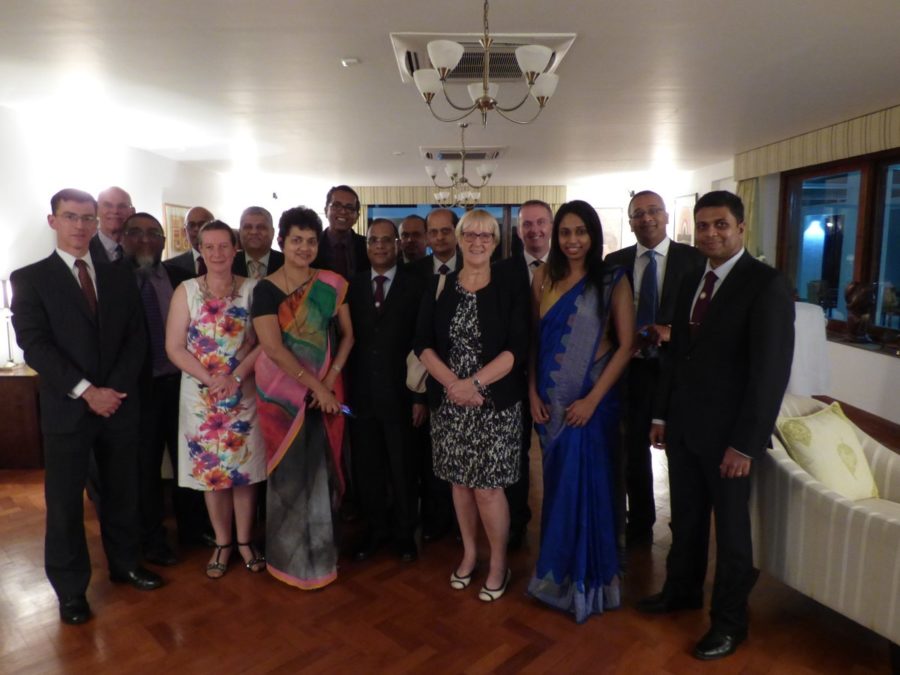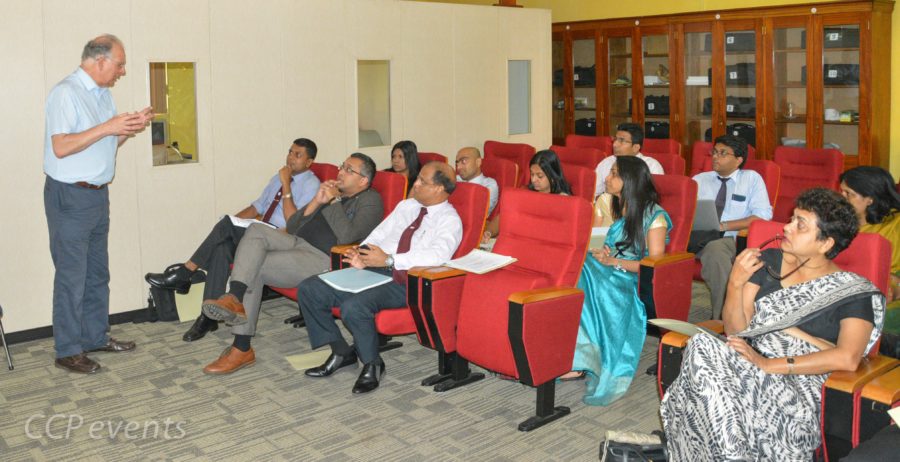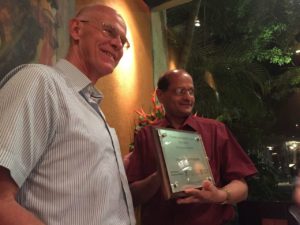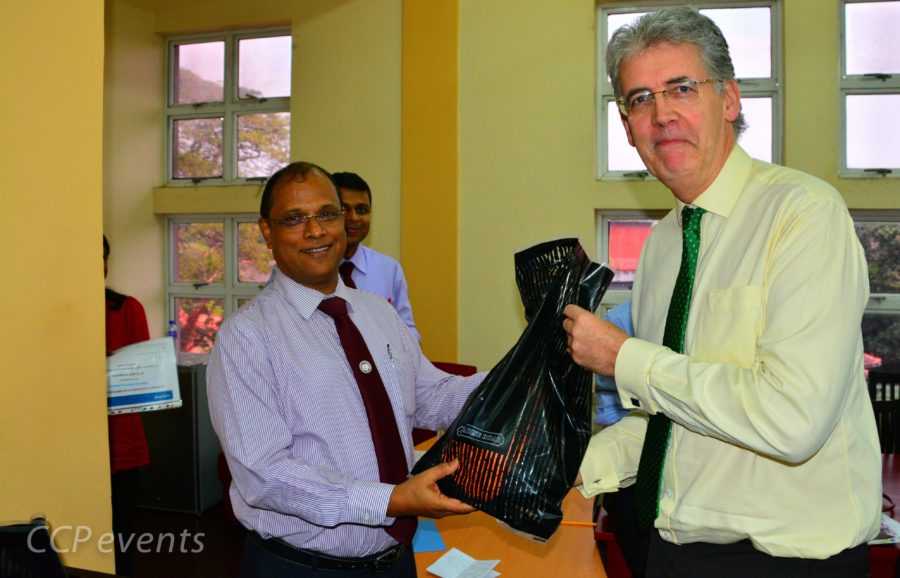5th January 2017 Colombo, Sri Lanka
To our very good health

At the start of the new year, many of us make resolutions to live more healthily. So this blog looks at one aspect of the ever expanding relationship between the UK and Sri Lankan medical establishments.
This relationship has always been close. The convention that Sri Lankan doctors can only progress to Consultant on completion of a year working overseas keeps that bond vibrant and current. At the end of last year, the relationship took a further step forwards, with the introduction of the MRCP PACES examination for the first time in Colombo. The MRCP is the post-graduate medical diploma for physicians in the UK but is well-respected the world over, and the PACES exam involves a circuit of clinical examination and communication stations. Faculty from the UK, with senior colleagues from the Ceylon College of Physicians (CCP), acted as examiners on this special occasion.

This development allows postgraduate trainee doctors to acquire a prestigious, internationally recognised qualification without leaving Sri Lanka. As Dr Lalith Wijeyratne, immediate past-president of the CCP said at our celebration of the first day of the exams, it also further strengthens the bond between the UK Royal College of Physicians and the Ceylon College of Physicians.
That bond is indeed a strong one, thanks to the Postgraduate Institute of Medicine and Medical Training Initiative scheme, which selects Sri Lankan physicians to spend up to 2 years in the UK, developing their skills and supporting the UK NHS. The scheme is hugely valued by both countries, with over a third of the 303 MTI fellows currently in the UK hailing from Sri Lanka.

Nilanka Perera spent a year at Addenbrooke’s hospital in Cambridge, working as a clinical fellow in Acute Medicine. She says: “I landed in Cambridge in the cold winter days of December 2014, and it took a while to adapt to the climate, culture and different health system! But my experience gave me an insight in to the areas needing further attention in our part of the world. I was intrigued by the palliative care support and the geriatric care at Addenbrooke’s. This experience was invaluable and will be extremely useful when working in Sri Lanka, a country with a rapidly ageing population. I was able to improve my soft skills and learn to work with different disciplines to achieve a common goal. I was allocated dedicated time to attend a specialty clinic of interest, and had the opportunity to work with eminent clinicians in the vasculitis specialty. Looking back, I see a fruitful year with acquisition of knowledge and skills amidst provision of care, not to mention the numerous sightseeing trips and cycling adventures during this year.”

Aloka Perera also returned to Sri Lanka “confident and determined to give a better and improved health care to patients”. He says “after I got my training slot, I was helped and guided by the Royal College of Physicians to obtain my registration with the General Medical Council.
The MTI fellows were well looked after coming to the UK with easing off of the anxiety of working in a foreign country. The experience I got while in UK was beyond expression in words. I brushed up my knowledge in medicine, learnt better team work and I could see what improvements could be made in the health sector back in Sri Lanka.”
And on the UK side, Dr Fraz Mir, Associate International Director for the RCP and a consultant physician in Cambridge said: “the MTI scheme is of mutual benefit to both the UK and Sri Lanka. We are very fortunate to attract senior trainees to work in the NHS. They contribute to its daily running but also enrich it with the experiences and expertise they bring.
Often they make the rest of us see how we might practice clinical medicine differently. While we always want more, we could all learn how to use existing NHS resources that much more efficiently and effectively.”

Dr. Thushara Matthias, currently in Cambridge, says the programme “gives an opportunity for Sri Lankan post graduate trainees to fulfill a training requirement and also be exposed and practice medicine in a different cultural setting. This not only broadens their perspective but also helps them polish up roughened corners in their training”. She also notes that the scheme builds strong cultural links that reap dividends into the future; “I believe the ties built during this time would also transform to long-term friendships and strengthen the relationship between our two countries.”
I was delighted to hear that 11 of the 43 candidates successfully passed their MRCP (UK) PACES on this round of exams, and wish them every success with their future careers.
Read more about our engagement with Sri Lankans at the links below:
https://blogs.fcdo.gov.uk/lauradavies/2016/12/09/trading-together/
https://blogs.fcdo.gov.uk/lauradavies/2016/07/12/the-books-that-bind/
Glad you enjoyed reading the blog, health and education are only two of the many areas where we engage with Sri Lanka.
Great stories! Congratulations!
That’s really good to see such a impressive steps towards health. Thanks for sharing.